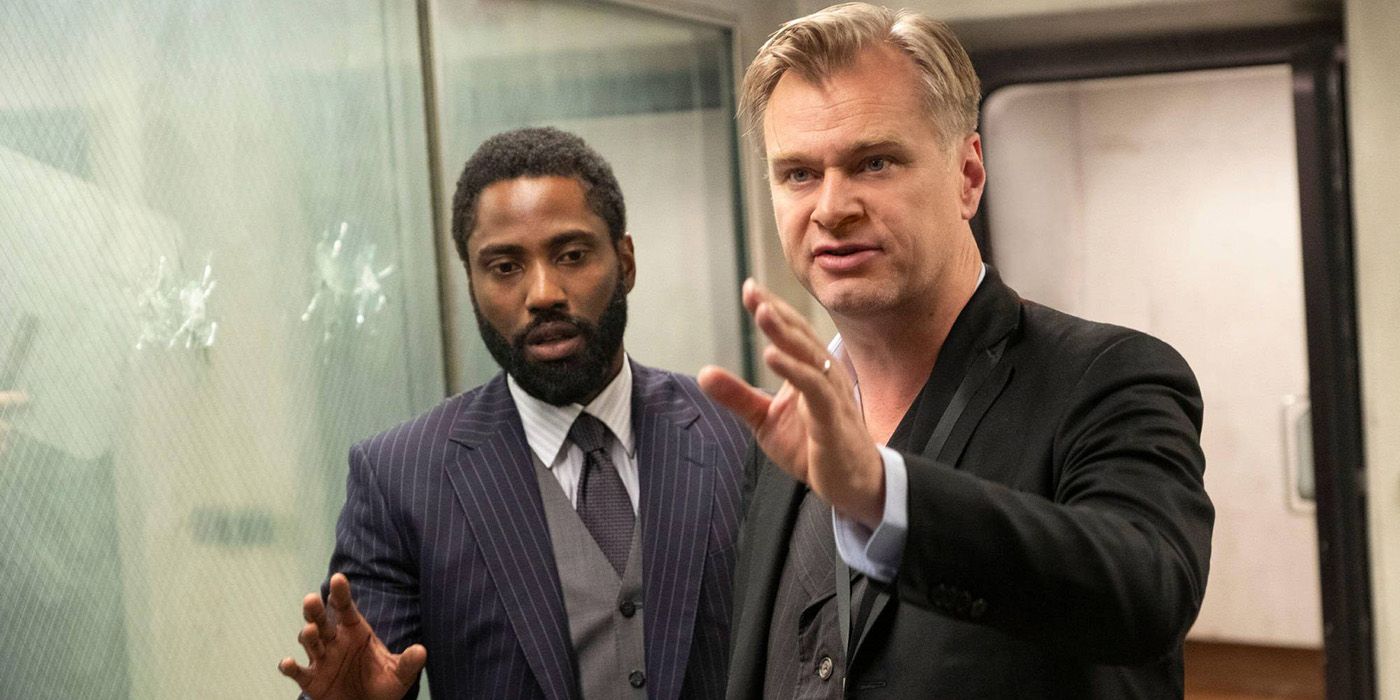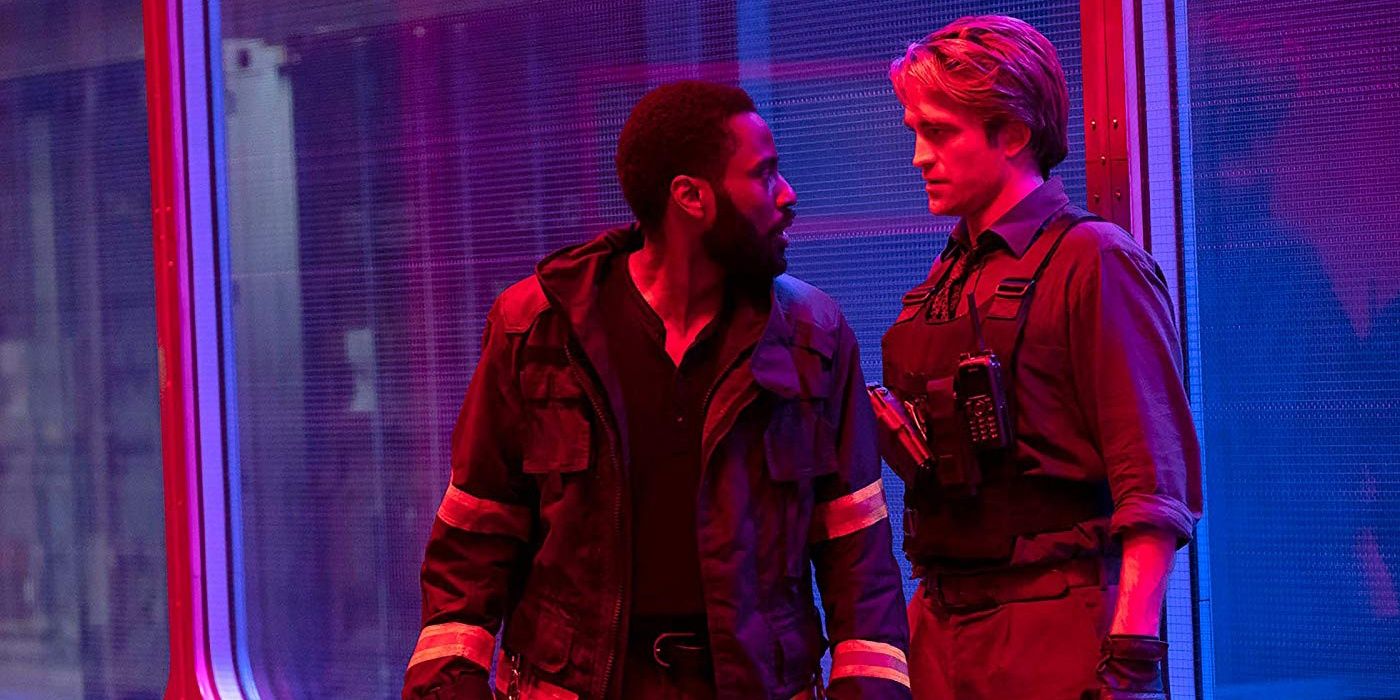Christopher Nolan has achieved a status few other directors can claim; he is a mainstream auteur. His directorial productions have grossed a combined 5 billion dollars worldwide and have won 11 Oscars. Though he has only made just shy of a dozen movies (thus far), already the majority are considered some of the best movies ever made. His name is attached to the cinematic heights of The Dark Knight (2008), Inception (2010), and Dunkirk (2017). It is no wonder that his most recent event was so widely anticipated. Tenet suffered delayed release due to the unfortunate outbreak of the COVID pandemic in 2020. Yet for those who did see it, whether in theatres or via streaming, reactions were mixed. Considering Nolan’s talent, and considering his previous works, could Tenet justifiably be called a bad movie, or was it the culmination, the destination, of his own pursuit of heady themes?
Unlike other movies scheduled for release in 2020 that were pulled and shelved to wait out the closures, like Black Widow, Tenet went full steam ahead. After three pandemic delays, it finally released in theatres in the summer of 2020 in North America. Tenet had the unfortunate responsibility of being the canary in the coal mine for Hollywood in the new pandemic landscape, suffering at the box office because of closures and being tossed to streaming services despite the director’s wishes.
Tenet stars John David Washington, future Batman Robert Pattinson, Elizabeth Debicki, and Kenneth Branagh’s second attempt as a Russian villain (the first radiating from Jack Ryan: Shadow Recruit). Like most Nolan movies, the elevator pitch is overly simplistic, and the full explanation is way too complicated. The best the audience can hope for is to seek out a commentary or an explanation video online that can break down the plot and its elements. There is a great deal of skill and depth applied to Tenet’s concept. And the execution, once understood, is truly astounding. Here is where the criticisms lie.
What is Tenet?
Explaining Tenet to the average moviegoer is like explaining a heavy math concept. It is about time, but not time travel. It is about love, but not romance. It is both a nuclear apocalypse of pharaonic proportions and a paradoxical ouroboros. Essentially, it is a science fiction flick with some mind-bending action. Very cool action, which is what makes it something the average cinema fan should watch at least once. The necessity to understand the core story, if one is into that kind of thing, forces one to rewatch it at least two to three times. If the name Christopher Nolan was not attached to it, the concept of Tenet might have been tossed aside entirely or made by a much more shoddy or messier production company.
Nolan’s Most Impressive?
For Nolan fans, Tenet might be classified as the culmination of twenty years of high concept sci-fi storytelling. Even as a novice director, all the way back to 2000’s Memento, Christopher Nolan has played with the mindscape of the audience by deceiving them or dazzling them with asynchronous storytelling. Memento dealt with memory and identity, as Guy Pearce pieces together the crime of his wife’s murder and unravels a mystery beyond his control. Pearce’s character has short-term memory that resets every fifteen minutes.
Ten years later Nolan makes Inception, which, once again, deals with memories with a mixture of time. In this one time is relative to the memory, where each stint of a memory’s sequence is of a different scale and length compared to the next level of memory. It is about time in depth.
2014’s Interstellar runs with the idea of relativity further past Inception by making it the main flux of the movie. The inciting incident for Matthew McConaughey’s character to venture forth to find the underground remnants of NASA is essentially a paradoxical time loop. Interstellar also treats time as a resource. Every side mission the space crew goes on costs them vast amounts of time back on Earth to the effect that when McConaughey returns to Earth he meets his once child daughter at the end of her elderly life.
To a degree, even 2017’s Dunkirk has an element of time woven all the way through. The narrative is split into three different time scales per event. A deliberate watch ticking is heard consistently through the entire movie. The watch ticks with precision as the action occurs in real-time to the audience, but up to one week apart from the characters' point of view. If one takes that course of movies as evidence, is anyone really surprised by Tenet? Clearly, it is well within his wheelhouse.
Nolan’s Most Decadent?
Perhaps, then, the problem is in Nolan’s delivery. What Tenet lacks in comparison to the previous films is an outside character to usher the audience through the highfalutin rigmarole. A tour guide, of sorts. Interstellar tipped close to this problem, but for whatever reason the debates McConaughey had with Anne Hathaway and the rest of the Endurance crew outlined their course of action and problems in a clearer manner. Inception had Elliot Page as the main guide for the audience.
John David Washington’s Protagonist character in Tenet seemed to understand everything too easily. His questions and counter ideas were still far above the line of layman’s terms. Normally a character stops the movie to explain something in the simplest terms or gives some sort of analogy to help the audience understand and follow what is happening. This never happened in Tenet. If it did happen, it was too dense a comparison to fully comprehend. Using the phrase “temporal pincer movement,” for example, causes one to spend time and attention unraveling that idea. Time that should have been spent enjoying the movie.
One could say that Nolan cannot explain it any simpler than that. If so, that is the problem. Nolan has pushed the idea of time so far that he has gone off the deep end. Rick and Morty could play with an idea like a “temporal pincer movement” but have Rick explain it away by telling Morty not to think too much about it. Tenet cannot take that cheat. The audience expects and demands an explanation. The whole central premise of the movie relies on an understanding of these concepts, and if no one can figure the thing out, what is the point?
There is an audience for hard science fiction movies. No doubt someone has a physics textbook in front of them comparing the theoretical ideas to the scenes playing on screen. No doubt too an argument ensues. It is with great anticipation that Nolan fans everywhere await his next film. His body of work has proven his talent and genius, even if his latest is overstuffed by his intelligence. Tenet is a Christopher Nolan movie at its purest and most distilled Nolan. It is, unfortunately, not his best movie.



